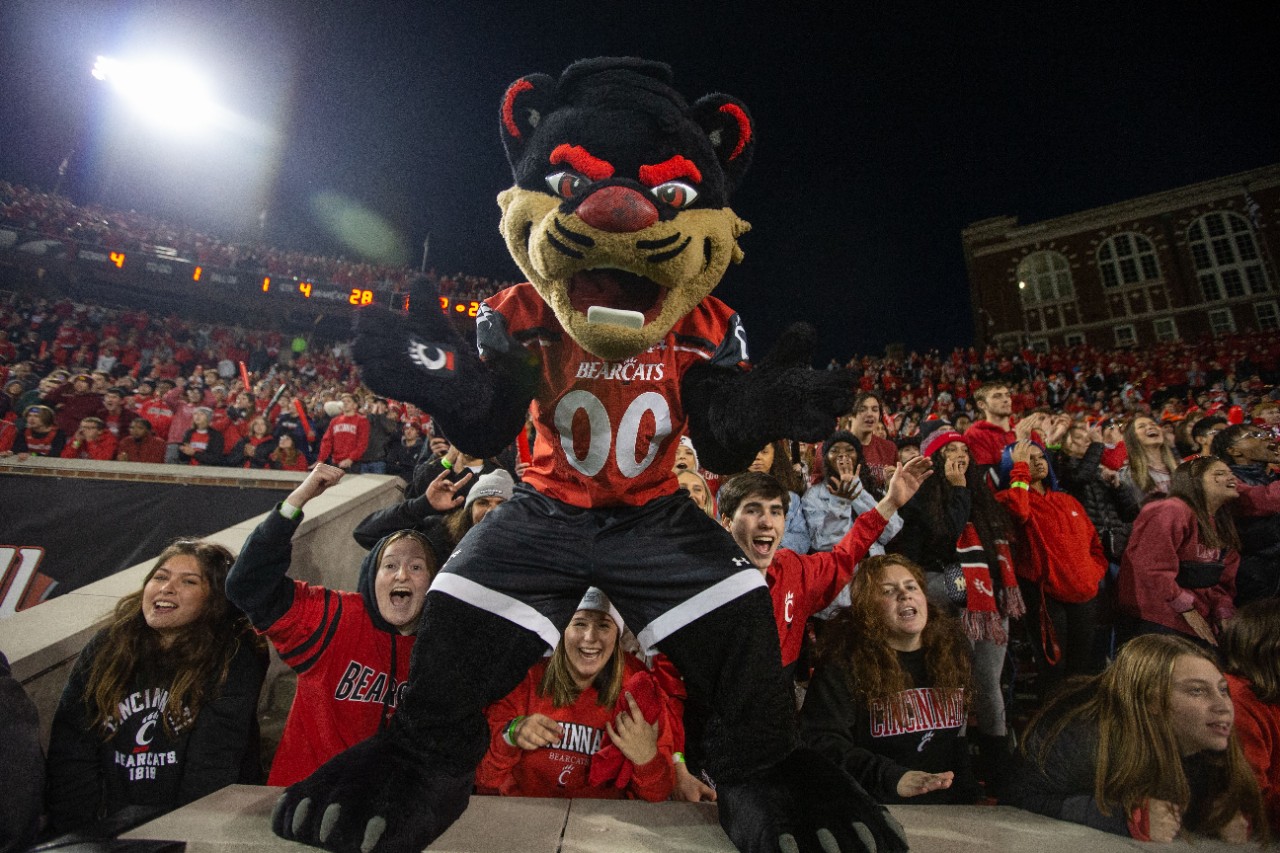
WCPO: UC's first ever mascot coach for Bearcat is a former wearer of the suit himself
So, what is like to be Bearcat?
Lips are sealed about Bearcat. But Chris Helmers, UC Bearcat mascot coach, shared with UC fans what it is like to supervise a team of students who try out for a spot as the UC Bearcat. Helmers, who donned the mascot suit, as a student spoke with WCPO about Bearcat, whose notoriety only grew as the Cincinnati Bearcat football team took on the University of Alabama in the Cotton Bowl Football Playoff.
The term “UC Bearcat” dates back to 1914 and seems to have first appeared in the campus newspaper following a football game between UC and the University of Kentucky Wildcats. The name was inspired by a cheer and play on words for UC star player Leonard K. “Teddy” Baehr. A chant created during the game, “They may be Wildcats, but we have a Baehr-cat on our side,” eventually led to the name being memorialized in a cartoon published in the student newspaper following Cincinnati’s win. The cartoon, by John "Paddy" Reece, depicted a bedraggled Kentucky Wildcat being chased by a creature labeled "Cincinnati Bear Cats."
Tags
Related Stories
Everything you need to know about scents and your hair
May 1, 2025
The University of Cincinnati's Kelly Dobos was featured in an NBC News article discussing the science behind hair fragrances and shampoos.
A farewell for the iconic Crosley Tower
May 1, 2025
The Cincinnati Business Courier reports that UC Board of Trustees approved $47.3 million for remediation and demolition of Crosley Tower. There are mixed feelings about what has been dubbed by some as the ugliest building on a U.S. college campus.
Most teens prescribed SSRIs did not have recommended follow-up...
April 30, 2025
The University of Cincinnati and Cincinnati Children's Hospital Medical Center's Martine Lamy commented to Medscape on new research that found fewer than half of the adolescents prescribed a selective serotonin reuptake inhibitor (SSRI) at two large Chicago pediatric primary care clinics had a follow-up visit within the recommended 6 weeks.
